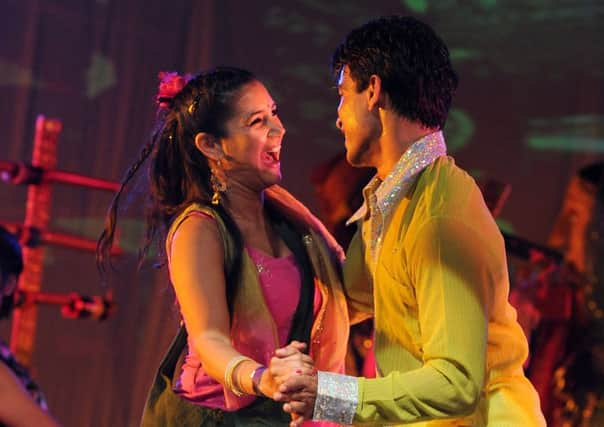Edinburgh Mela: Challenging but joyful cultural collision


There is something profoundly moving, if at times sonically challenging, about this joyful cultural collision. In one tent, demurely jingling ankle bells herald the cosmic dance of Lord Shiva; in the next, the spectacularly dreadlocked Mauritian singer Mike Delaitre reflects the innately multicultural nature of his island with beaty ebullience.
A heavy bass thump from the main stage might impinge slightly on the sound of pipes – not men in tartan but the Polish Kapela Dudziarska Kozlary ze Steszewa wielding fiddles and elaborate-looking duda bagpipes, which chirp out village dance tunes while a deceptively mild-looking woman unleashes a muscular vocal style possibly honed by calling cattle.
Advertisement
Hide AdInvestigate that bass wallop and it’s Danny Ladwa mixing elements of reggae, hip-hop and electronica.
He’s also an accomplished beat-boxer and eschews all electronics to deliver an explosive stream of mouth percussion mingled with breathless snatches of D Train’s You’re the One for Me.
Elsewhere the Anglo-Indian synthesis of Strings Attached perform songs by Rabindranath Tagore, his love of Burns reflected by a singer shifting between Ye Banks and Braes and Tagore’s take, while their cellist, James Barralet, leaves beautifully plangent solo cadences hanging in the air, the music of Tagore and Indo-jazz pioneer John Mayer.
A visit to the dance tent reveals La Otra Orilla from Montreal with a hauntingly beautiful yet very contemporary flamenco ballet, Moi&lesAutres – all grace, fire and beguiling quirkiness.
A sudden squall drives the crowds into the main tent, where the action is increasingly focussed on the Subcontinent, including a brief if enthusiastically greeted set from Sazia Judge, “Queen of Bengali pop”. She is indeed a fairly regal, sequined presence, although with no actual band, just an epic backing track, which seems to this bemused reviewer tantamount to karaoke on a grand scale, although she’s an undeniably powerful singer.
The finale brings a mighty eruption of Bhangra from Birmingham-born Punjabi star Sukshinder Shinda, who indeed has a band – blaring synths and a thunder of kit and dhol drums, over which the affable, turbaned singer caters to an ecstatically bopping audience.
To an outsider, his songs may be impenetrable, but the rhythms are compelling, the sheer exuberance mightily infectious.